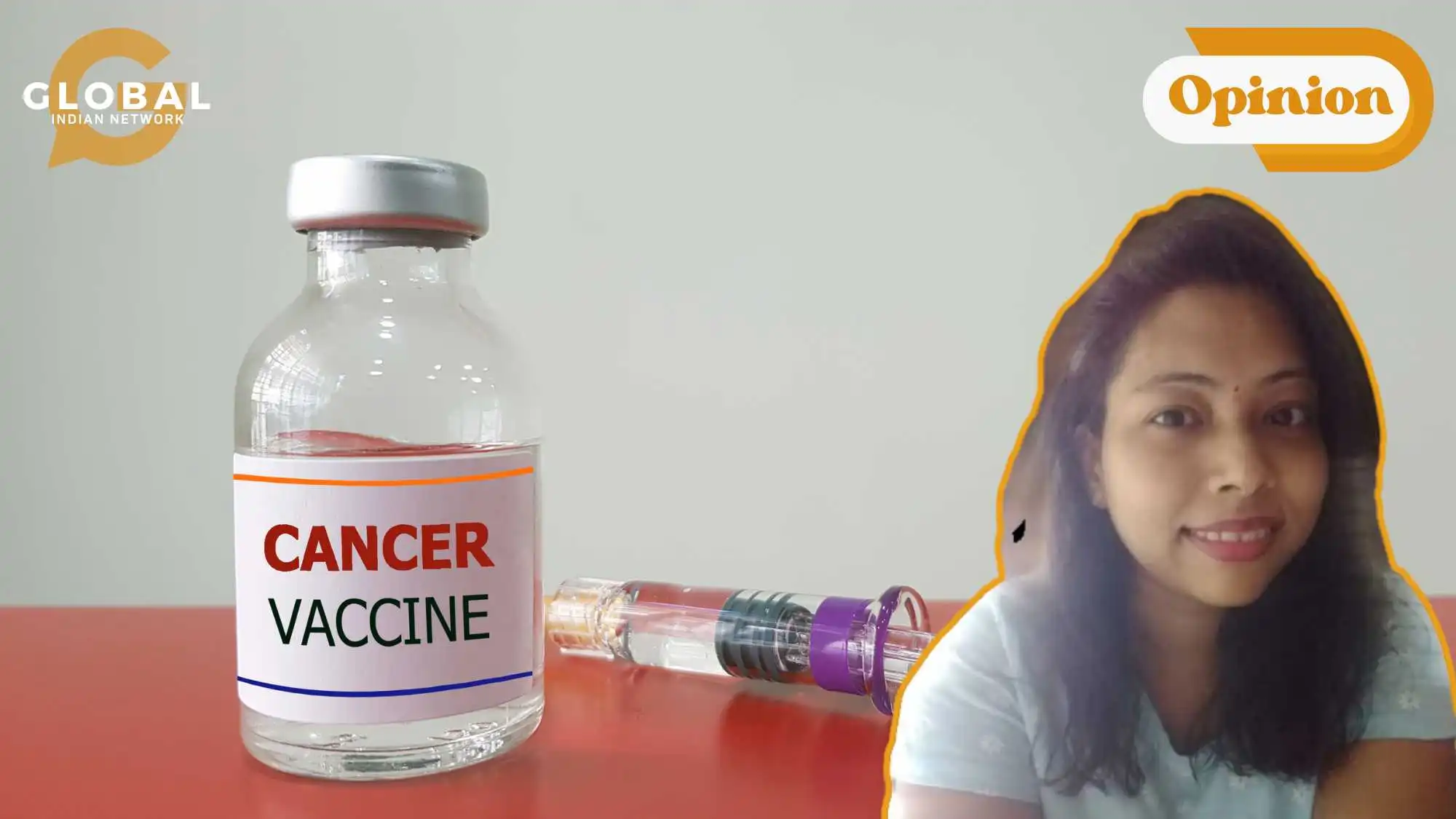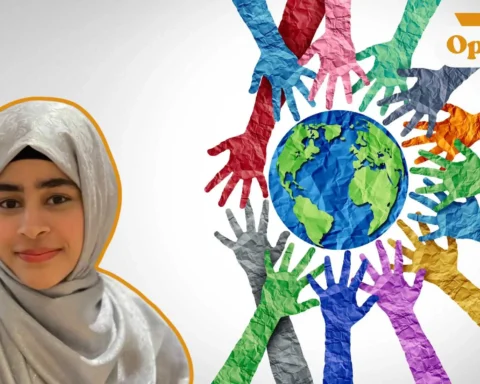Cancer remains a prominent global health concern, claiming nearly 10 million lives in 2020 alone, representing approximately one in six deaths worldwide. Among the most prevalent forms are breast, lung, colon, rectum, and prostate cancers. Notably, about a third of cancer-related deaths stem from preventable factors like tobacco usage, elevated body mass index, excessive alcohol consumption, inadequate intake of fruits and vegetables, and sedentary lifestyles.
According to the Global Cancer Observatory, infections such as human papillomavirus (HPV) and hepatitis contribute significantly to cancer incidence, particularly in low- and lower-middle-income nations, accounting for approximately 30% of cases.
Listen To This Podcast: The Power of Healing: Embracing a Proactive Approach to Battling Cancer with David Peters
Cancer, a disease characterised by uncontrolled cell growth, casts a long shadow over humanity. While advancements in treatments like surgery, chemotherapy, and radiation therapy offer hope, the quest for a lasting cure continues.
Source: WHO
Source: WHO
Treatment for Cancer
Cancer treatment strategies encompass a range of approaches tailored to the unique characteristics and progression of the disease. Localised treatments, such as surgery and radiation therapy, directly target tumours and surrounding tissues.
Meanwhile, systemic treatments like chemotherapy, immunotherapy, and targeted therapy work throughout the body to combat cancer cells. Hormone therapy is effective in controlling cancers fueled by hormonal imbalances, while stem cell transplants offer a solution by replacing damaged bone marrow with healthy cells.
Additionally, palliative care plays a crucial role in managing symptoms and improving the overall quality of life for cancer patients.
You Might Be Interested In: Redefining Life with Cancer: Shrenik Shah's Voice of Triumph
Latest Advancements in Cancer Treatments
While advancements in treatments like surgery, chemotherapy, and radiation therapy offer hope, the quest for a lasting cure continues. Among the most promising frontiers lies in the development of cancer vaccines, aiming to train the body's immune system to recognise and eradicate these abnormal cells.
Cancer vaccines represent a promising avenue in cancer treatment, offering potential preventive and therapeutic benefits. There are two main types of cancer vaccines: preventive vaccines and therapeutic vaccines.
Preventive vaccines aim to prevent cancer by targeting infectious agents known to cause certain cancers, such as human papillomavirus (HPV) and hepatitis B virus (HBV), which can lead to cervical and liver cancers, respectively. These vaccines stimulate the immune system to produce antibodies against the specific infectious agent, thus reducing the risk of developing associated cancers.
Therapeutic vaccines are designed to treat existing cancers by activating the immune system to recognise and attack cancer cells. These vaccines often target specific proteins or antigens present in cancer cells, triggering an immune response that can potentially eradicate tumours. However, therapeutic cancer vaccines have proven challenging to develop and are still largely experimental, with limited success in clinical trials.
Research continues to explore ways to enhance their effectiveness and expand their applicability to a broader range of cancers. Overall, while cancer vaccines hold considerable promise, further research and development are needed to fully harness their potential in preventing and treating various types of cancer.
Listen To This Podcast: Cancer, Love, and Courage: A Husband's Journey of Loss and Resilience with Sreedharan Vallipuram
The Global Race for Cancer Vaccines
Russia
Russia's recent claim of being "very close" to developing cancer vaccines has garnered global attention. However, scepticism abounds due to the lack of specifics and concerns about transparency in Russian research.
While specifics of these claimed vaccines remain unclear, Russia does have ongoing research in the field. The National Center for Translational Medicine is studying personalised dendritic cell vaccines for various cancers, and the Gamaleya Research Institute is exploring oncolytic viruses for melanoma and bladder cancer. However, independent verification and robust clinical trials are crucial before drawing definitive conclusions.
United States
The United States leads the pack in cancer vaccine research and development, with numerous ongoing clinical trials across various cancer types. Some notable developments include:
- BioNTech is exploring personalised mRNA vaccines targeting individual patients' mutations. Early trials for melanoma and other cancers show promising results.
- Moderna is also developing personalised mRNA vaccines for various cancers, with ongoing Phase 2 trials.
- Provenge, a therapeutic cancer vaccine for prostate cancer, is already FDA-approved, demonstrating the potential of this approach.
Europe
European researchers are actively involved in developing cancer vaccines, often through collaborative efforts. Here are some key examples:
- Glioma Actively Vaccinated European Consortium (GLIOVAC) is investigating therapeutic vaccines for brain tumors.
- Translational Cancer Research Network (TCRN) supports the development of various cancer vaccines, including dendritic cell vaccines and personalised vaccines.
- German Cancer Research Center (DKFZ) is at the forefront of exploring various immunotherapeutic approaches, including vaccines for different cancers.
Beyond the West
Cancer vaccine research extends beyond the West, with promising developments in other regions:
- China: The National Cancer Institute of China is actively involved in exploring various cancer vaccines, including personalised approaches and those targeting specific mutations.
- Japan: The University of Tokyo and other institutions are investigating therapeutic vaccines for various cancers, particularly focusing on immune checkpoint inhibitors.
- India: The Indian Council of Medical Research (ICMR) supports several ongoing clinical trials for cancer vaccines, including those targeting cervical and breast cancer.
The latest cancer vaccine approved by the U.S. Food And Drug Administration(FDA) is Sipuleucel-T (Provenge®), a therapeutic vaccine composed of patients' own stimulated dendritic cells approved for prostate cancer.
India's first indigenous CAR T-cell therapy, C-CAR001, targeting Acute Lymphoblastic Leukemia, represents a significant milestone in cancer treatment. Developed through a collaboration between the National Cancer Institute (NCI) in the United States and researchers at the National Institute of Immunology (NII) in India, this therapy addresses high costs and limited accessibility. With support from the NCI, NII established a CAR T-cell manufacturing facility, overcoming challenges to optimise the therapy's production for affordability and scalability. The approval of C-CAR001 highlights the power of international collaboration in advancing healthcare and paves the way for further innovations in CAR T-cell therapy within India.
Check Out This Podcast: From Darkness to Light: Omita's Triumph Over Cancer and Adversity
Challenges and the Road Ahead
Despite the promising advancements in cancer vaccine development, several notable challenges persist. Tumour heterogeneity presents a significant obstacle, as tumours can exhibit diverse characteristics, necessitating personalised treatment approaches tailored to individual patients. Moreover, cancer cells frequently employ mechanisms to suppress the immune system, hindering the effectiveness of immunotherapy-based vaccines.
As we progress in cancer treatment, it's crucial to recognise the importance of accessibility and affordability in ensuring that life-saving therapies reach all who need them. We encourage readers to share their thoughts and experiences with cancer treatment and research in the comments below. Together, let's promote dialogue and support in the quest for a world free from the burden of cancer.
Let us know your thoughts in the comment section below. If you have any burning opinions or ideas, please contact us at larra@globalindiannetwork.com.










